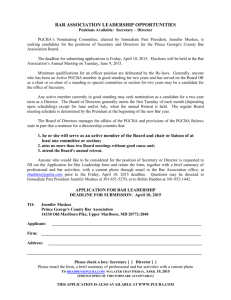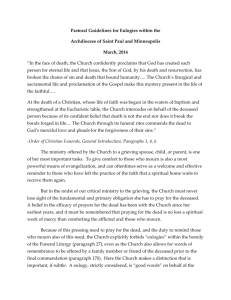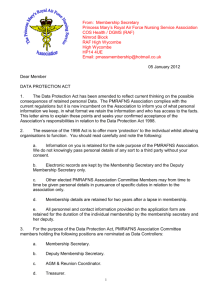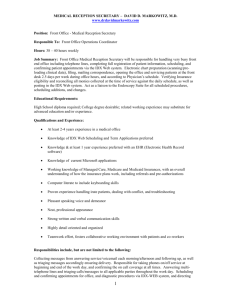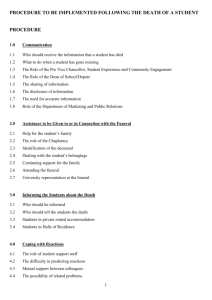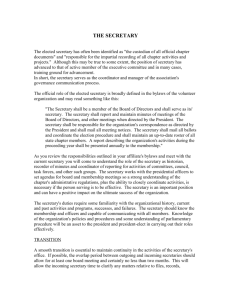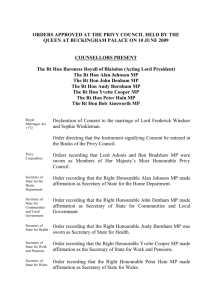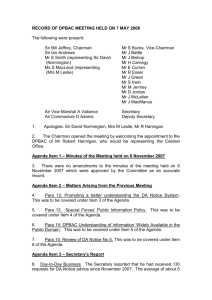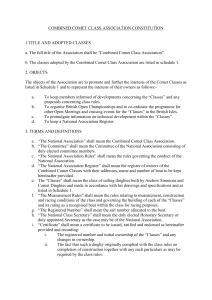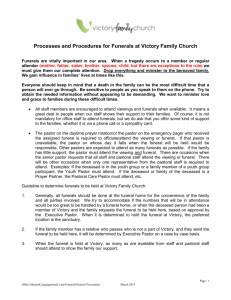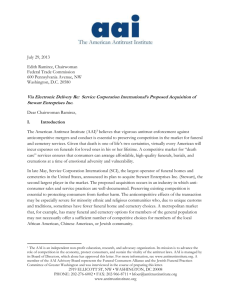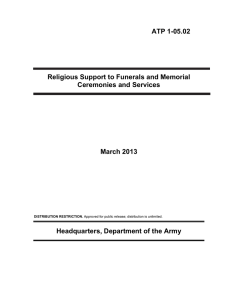When a Student Dies: A University Protocol
advertisement
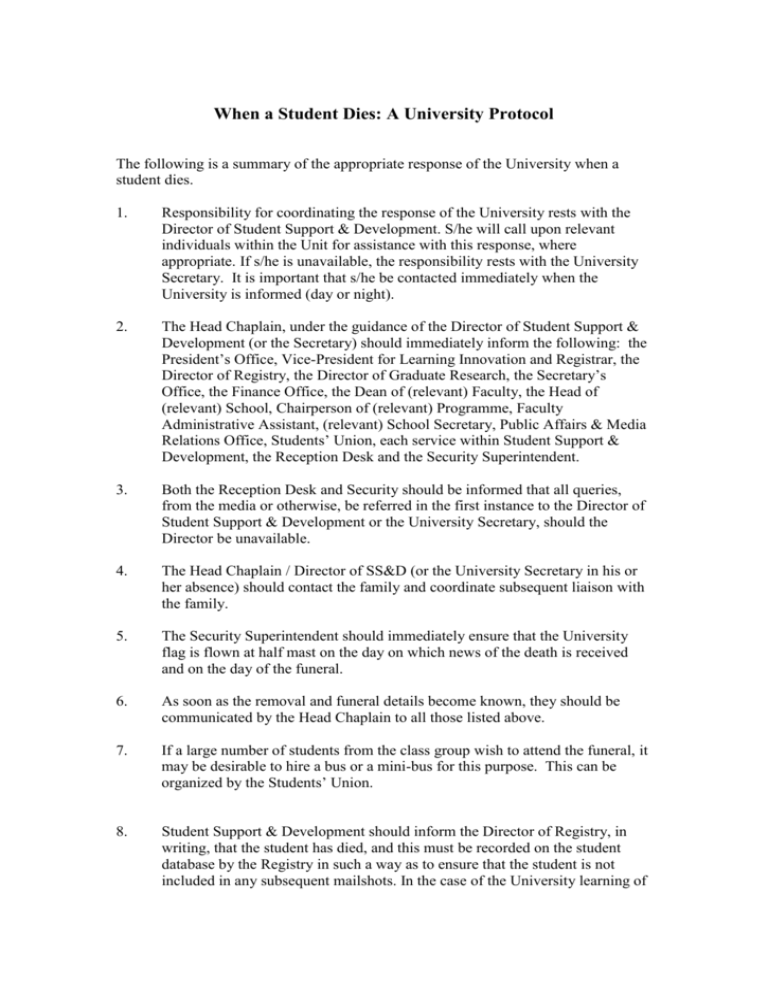
When a Student Dies: A University Protocol The following is a summary of the appropriate response of the University when a student dies. 1. Responsibility for coordinating the response of the University rests with the Director of Student Support & Development. S/he will call upon relevant individuals within the Unit for assistance with this response, where appropriate. If s/he is unavailable, the responsibility rests with the University Secretary. It is important that s/he be contacted immediately when the University is informed (day or night). 2. The Head Chaplain, under the guidance of the Director of Student Support & Development (or the Secretary) should immediately inform the following: the President’s Office, Vice-President for Learning Innovation and Registrar, the Director of Registry, the Director of Graduate Research, the Secretary’s Office, the Finance Office, the Dean of (relevant) Faculty, the Head of (relevant) School, Chairperson of (relevant) Programme, Faculty Administrative Assistant, (relevant) School Secretary, Public Affairs & Media Relations Office, Students’ Union, each service within Student Support & Development, the Reception Desk and the Security Superintendent. 3. Both the Reception Desk and Security should be informed that all queries, from the media or otherwise, be referred in the first instance to the Director of Student Support & Development or the University Secretary, should the Director be unavailable. 4. The Head Chaplain / Director of SS&D (or the University Secretary in his or her absence) should contact the family and coordinate subsequent liaison with the family. 5. The Security Superintendent should immediately ensure that the University flag is flown at half mast on the day on which news of the death is received and on the day of the funeral. 6. As soon as the removal and funeral details become known, they should be communicated by the Head Chaplain to all those listed above. 7. If a large number of students from the class group wish to attend the funeral, it may be desirable to hire a bus or a mini-bus for this purpose. This can be organized by the Students’ Union. 8. Student Support & Development should inform the Director of Registry, in writing, that the student has died, and this must be recorded on the student database by the Registry in such a way as to ensure that the student is not included in any subsequent mailshots. In the case of the University learning of the death of a graduate, both the Registry and the Alumni Office should be informed, in writing, to ensure no subsequent mailings are sent. 9. If the death has occurred abroad, the University may have an important role to play, through the Department of Foreign Affairs, in assisting with the bureaucracy and expediting the return of the remains to Ireland. In this case, it may also be useful to check that arrangements are made for the reception of the remains at the airport, if deemed appropriate. 10. The Finance Office should establish whether the Student Personal Accident Policy applies and, if it does, should liaise with the Director of Student Support & Development to ensure that the information is conveyed to the family at an appropriate time. 11. The class group may wish to have a commemorative service on campus. If so, this should be organised by the Chaplains, and the above listed members of staff should be informed of arrangements. 12. The Counsellers can be an important resource in cases where grievance counselling is deemed useful either for individuals or for the class group. 13. Following the funeral, a letter from the President should be sent to the family of the student. 14. While it is understandable that, in the immediate aftermath of the death of a student, classmates and others might want a commemorative plaque or some other tangible memorial, no undertakings or publicity should be given to such an eventuality until the University has had time to consider it. There is on campus a Garden of Remembrance in memory of all deceased students and staff of the University. There is also a Book of Remembrance kept in the Inter Faith Centre, and an annual remembrance ceremony. 15. The primary consideration in the University’s response on these occasions should be the wishes of the family. Therefore, if the parents, for example, wish absolutely no comment to be made to the media (even confirming that the deceased was a student here), or if they wish that the circumstances of the death not be conveyed to anyone in the University, this wish must be adhered to. Director of Student Support & Development November 2008

